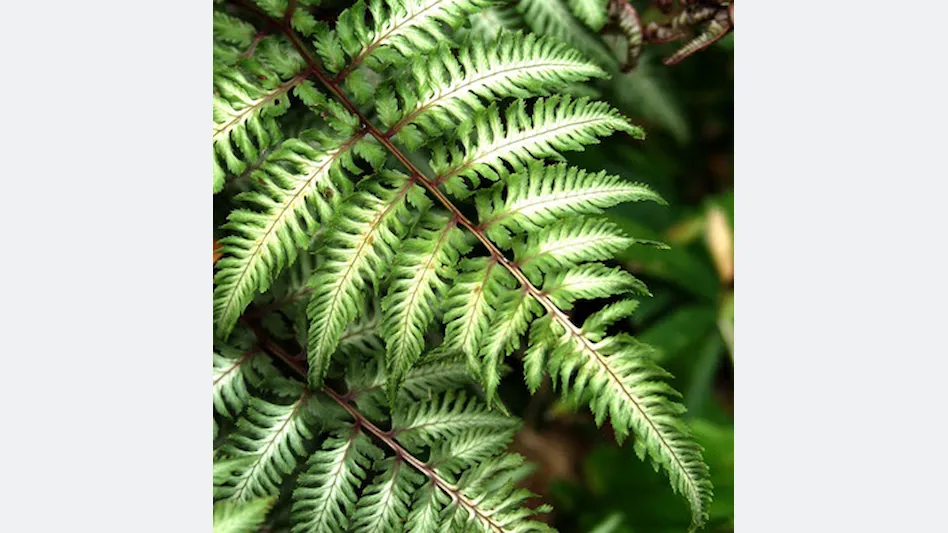
DNA testing of garden ferns sold at plant nurseries in North Carolina, Texas and California has found that plants marketed as American natives may actually be exotic species from other parts of the globe, ScienceDaily reported.
The finding relied on a new technique called “DNA barcoding” that uses small snippets of DNA to distinguish between species, in much the same way that a supermarket scanner uses the black lines in a barcode to identify cans of soup or boxes of cereal.
A team of North Carolina researchers suspected a fern sold in commercial nurseries might not be what the labels said it was, so they took a specimen to the lab to analyze its DNA. When they pasted the DNA sequence of three of the plant's genes into an online database, they discovered that what had been labeled as Wright's lip fern (Cheilanthes wrightii), an American native popular in rock gardens and xeriscapes, was in fact a bristle cloak fern (C. distans), a distant relative from Australia.
“It was a 100 percent match,” said co-author Eric Schuettpelz, a post-doctoral fellow at the National Evolutionary Synthesis Center (NESCent) in Durham. The team's findings appear online in the April 9 issue of Molecular Ecology Resources. “Probably 50 percent of the plants I've collected from botanical gardens and greenhouses were incorrectly identified,” said Schuettpelz.
“Nomenclature mix-ups in the nursery industry are frequent in all plants, ferns included,” said co-author Tony Avent of Plant Delights Nursery in Raleigh, a retail nursery that sells plants from all over the world. Most nurseries are run by growers and retailers, not taxonomists, Avent said. Ferns are difficult to monitor because they're tricky to tell apart.





